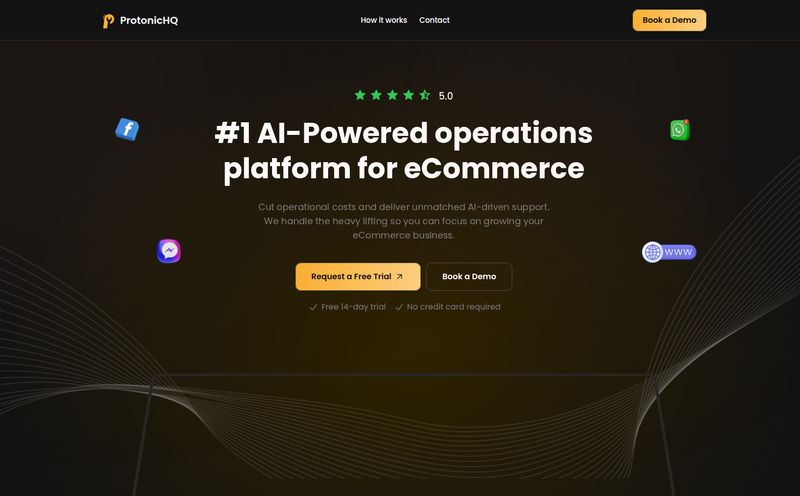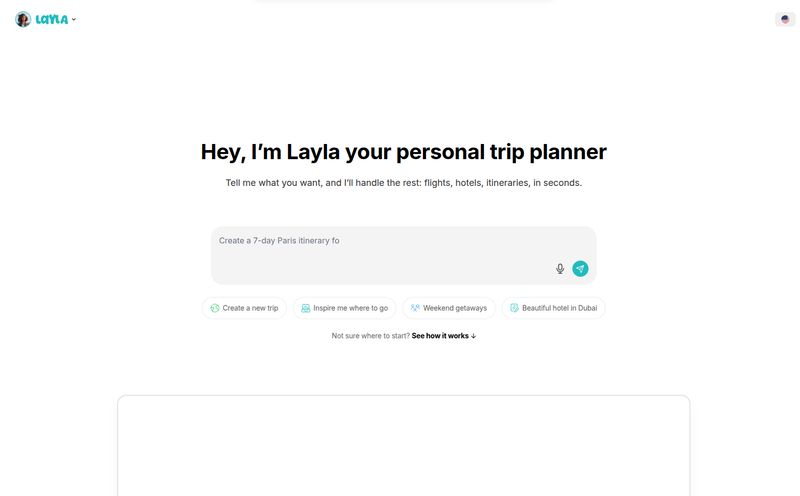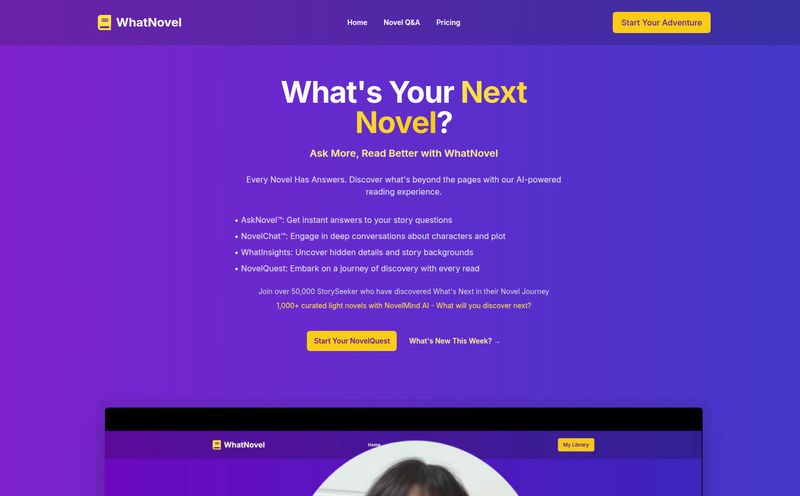If you’re a Dungeon Master, Game Master, Keeper, or whatever title you wear, you know the struggle. The session ends, the high-fives are exchanged, the players are buzzing about that clutch natural 20… and you’re left with a battlefield of notes. A crumpled character sheet with a hastily scribbled NPC name, a dozen open tabs on your browser, and a Discord chat log that scrolls for miles. The post-session admin is a real momentum killer.
I’ve been running games for years, and my process has always been a kind of controlled chaos. I’d spend at least an hour, sometimes more, trying to decipher my own handwriting and organize the plot threads my players inevitably tangled. It’s the part of being a DM that feels most like… well, work.
So when I heard about a tool called RollSummary, my interest was piqued. An AI that listens to your game and writes the summary for you? Sounds like science fiction. Or maybe a trap laid by a mischievous gnome artificer. I was skeptical, but the promise of reclaiming those lost hours was too good to ignore. I had to try it.
So, What is RollSummary Anyway?
At its core, RollSummary is an AI-powered assistant designed specifically for us, the forever-DMs. The concept is beautifully simple: you give it an audio recording of your tabletop RPG session, and it gives you back a coherent, organized summary. It’s like having a dedicated scribe who never gets bored, never misses a detail, and is surprisingly good at figuring out what actually mattered during three hours of chaotic dice-rolling and goblin-punching.
It doesn't just transcribe the audio, which, frankly, would still be a mess. It synthesizes the information. It pulls out key events, tracks important characters and locations, and even helps you prep for the next game. It’s built to be the bridge between the session you just finished and the one you need to plan.
How It Actually Works (My Experience)
The website claims it’s a simple three-step process, and for once, the marketing isn't lying. It really is that straightforward.
- Upload Your Recording: First, you need an audio file. For my online group, this was easy. We use Discord, and I just used the Craig bot to record our session (highly recommend, by the way). For in-person games, you'd just need to put a decent mic in the middle of the table. I grabbed my 3-hour .mp3 file and uploaded it.
- Add Context: This is the clever part. The AI isn't going in blind. You give it a little primer—a brief description of your campaign world, the main quest, and key NPCs. This helps the AI understand that “Grimmthor” is the party’s brooding barbarian, not a brand of ale. I spent maybe five minutes writing a quick paragraph about my homebrew setting, “The Shattered Coast.”
- Get Your Summary: You hit the button and… wait. The AI churns away for a bit, processing the chaos. Then, you get a notification. And what you get back is pretty magical.

Visit RollSummary
The Features That Actually Matter
Okay, an AI summary is cool. But the devil, as they say, is in the details. Or in this case, the angels are in the features. Here’s what stood out to me.
Beyond Just a Transcript
This is not just a word-for-word printout of your session. What I got was a beautifully structured document. It included a Session Resume, which was a fantastic high-level overview. Perfect for a "Previously on..." recap at the start of the next game. It also had a more detailed summary that broke down the session chronologically, and it even bolded key terms like character names and locations. My jaw kinda dropped. It had pulled out every significant NPC interaction and every major plot point I’d thrown at them.
Your Personal Plot Hook Generator
This is where RollSummary went from a “nice-to-have” to a “must-have” for me. The AI doesn’t just report on the past; it helps you build the future. Two features are clutch here:
- Next Session Suggestions: Based on the events of the game, it generated a list of potential paths forward. It pointed out that the players seemed really interested in the mysterious locket they found, suggesting I could tie it to a local guild. It also noted they completely ignored a major plot hook I thought was obvious (classic players), and suggested a new way to reintroduce it.
- Points of Interest (POI) Identification: It creates a list of all the places, people, and items that were mentioned. Suddenly, that off-the-cuff tavern name I invented, “The Salty Siren,” is logged and remembered. No more frantically searching my notes to remember the name of the blacksmith they met two months ago. It's all there.
System Agnostic? Yes, Please.
I can’t stress this enough. The tool doesn't care if you're playing Dungeons & Dragons 5e, Pathfinder, Call of Cthulhu, or a weird homebrew system about sentient teacups on a quest for the perfect biscuit. Because it works from audio and context, it’s completely system agnostic. This is huge. It means the tool is useful for literally any TTRPG group, which is a massive win for the community.
Let's Talk Money: The RollSummary Pricing Model
Alright, the dreaded pricing section. I was fully expecting another monthly subscription to add to my growing pile. But I was pleasantly surprised. RollSummary uses a one-time token pack system. You buy a bundle of tokens, and you use them to process your audio. No recurring fees.
| Plan Name | Tokens | Price |
|---|---|---|
| Basic Roll | 10,000 | $10 |
| Epic Roll | 20,000 | $15 |
This model is way better for the average DM. We don't always play every week. Sometimes life gets in the way and a month goes by. With a subscription, you're paying for nothing. Here, you just buy what you need, when you need it. I'm still figuring out the exact token-to-audio-hour ratio, but for a typical 3-4 hour session, you're not going to be breaking the bank. It feels fair, and in the world of software-as-a-service, “fair” is a refreshing change of pace.
The Good, The Bad, and The... AI?
No tool is perfect. As much as I'm gushing, it's important to have a balanced view. It’s a powerful ally, but it's not going to replace you.
What I Loved
The time-saving is the number one benefit. I easily got back an hour of my life. The quality of the summary was excellent, and the session prep suggestions were genuinely insightful. It felt less like a transcript and more like a collaboration with a very efficient assistant. It takes the administrative headache out of being a DM, letting you focus on the fun stuff: planning betrayals and dreaming up new monsters.
Things to Keep in Mind
The biggest caveat is audio quality. The old saying “garbage in, garbage out” is critical here. If you have people talking over each other, a faint microphone, or a lot of background noise, the AI is going to struggle. It needs a relatively clear recording to work its magic. So, investing in a decent USB mic for in-person games or using a good Discord bot for online ones is pretty much mandatory.
Also, the AI isn’t infallible. It might mishear a fantasy name or occasionally get a minor detail wrong. But I see this as a feature, not a bug. It gives you a 95% complete document that you can quickly scan and correct. It’s a starting point, a fantastic draft, not a finished manuscript handed down from on high. And that is still a massive improvement.
Frequently Asked Questions about RollSummary
- How much does RollSummary cost?
- It uses a pay-as-you-go token system. You buy packs of tokens, like $10 for 10,000 tokens, with no monthly subscription. You only pay for what you process.
- Does RollSummary work with any RPG system?
- Yes! It's completely system agnostic. It works for D&D, Pathfinder, Call of Cthulhu, FATE, and any homebrew system you can imagine since it analyzes the audio of your conversation, not the game mechanics.
- What kind of audio file do I need?
- Most standard audio formats work (like MP3, WAV, M4A). The most important thing isn't the file type, but the clarity of the audio itself. Clear speakers, minimal background noise, and not too much cross-talk will give you the best results.
- Can I use it for in-person games?
- Absolutely. Just place a good omnidirectional microphone in the center of your gaming table to capture the conversation. A modern smartphone can even work in a pinch if the room is quiet.
- Is the AI summary completely accurate?
- It's very accurate, especially with good audio, but not 100% perfect. It's best to think of it as an incredibly detailed draft. You'll want to give it a quick read-through to make any minor corrections, but it saves you from doing all the heavy lifting.
- Is it better than just taking my own notes?
- In my opinion, yes. It allows you to be more present and engaged during the game instead of frantically scribbling notes. It captures everything, not just what you manage to write down, providing a more complete picture of the session.
Final Verdict: Is RollSummary Worth Rolling the Dice On?
So, is RollSummary a critical hit? For me, it absolutely is. If you're a DM who feels bogged down by session notes, struggles to keep your campaign organized, or just wants to free up more time for creative prep, this tool is a game-changer. It's an investment in your most valuable resource: your time and creative energy.
It’s not here to replace the Dungeon Master. It’s here to be the best damn squire a DM could ask for.
It won't be for everyone. If you genuinely love the monastic, meditative process of hand-writing your session logs, then more power to you. But if you’re like me, and you want to spend more time building worlds and less time doing paperwork, I wholeheartedly suggest giving RollSummary a try. It might just be the best magic item you add to your campaign this year.



